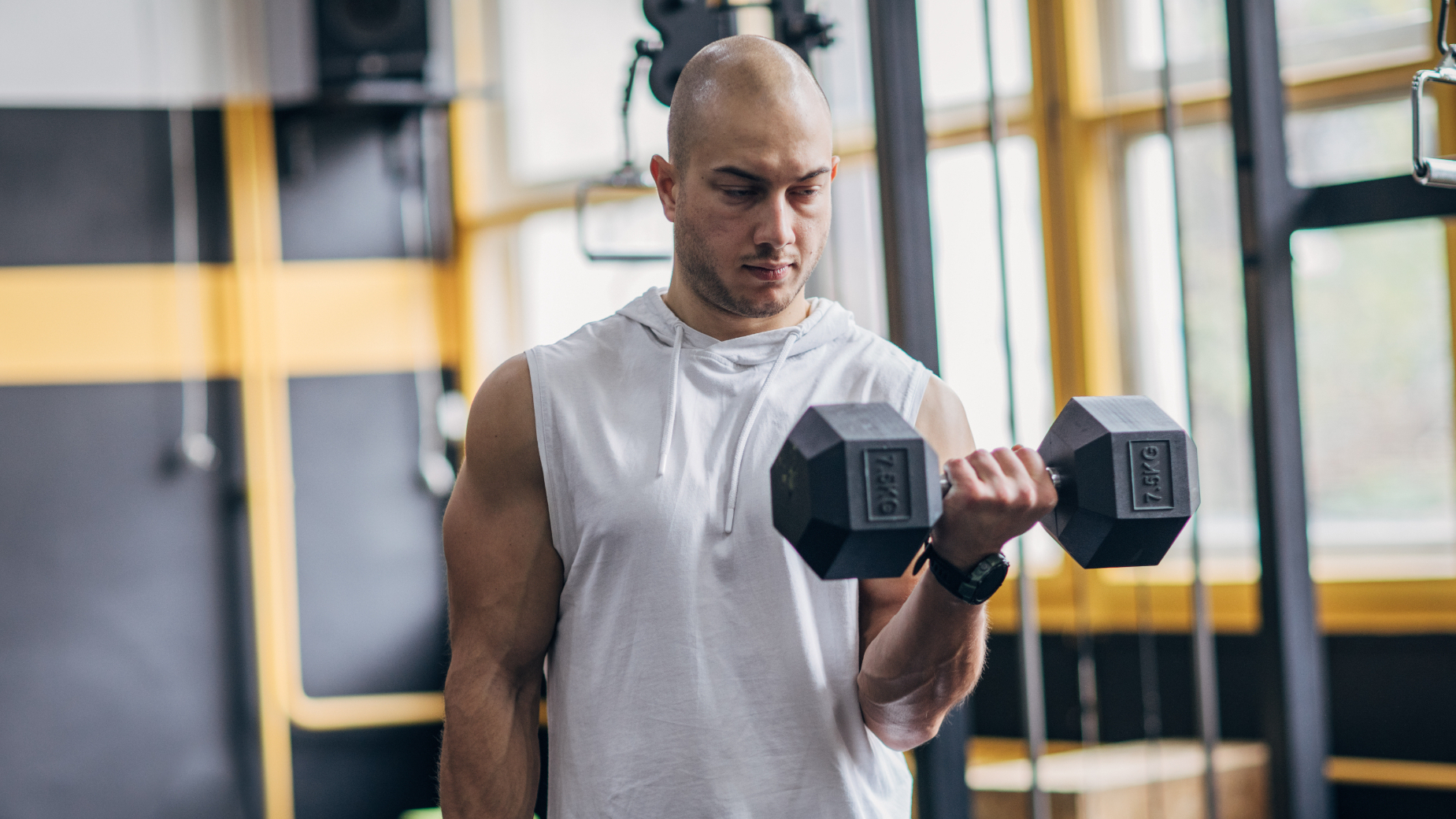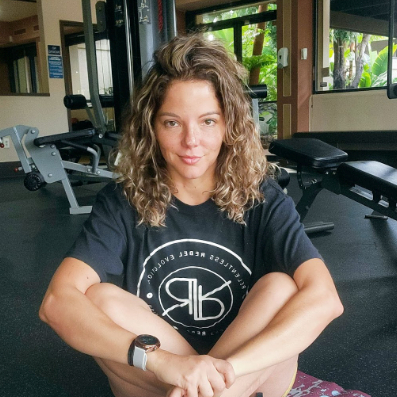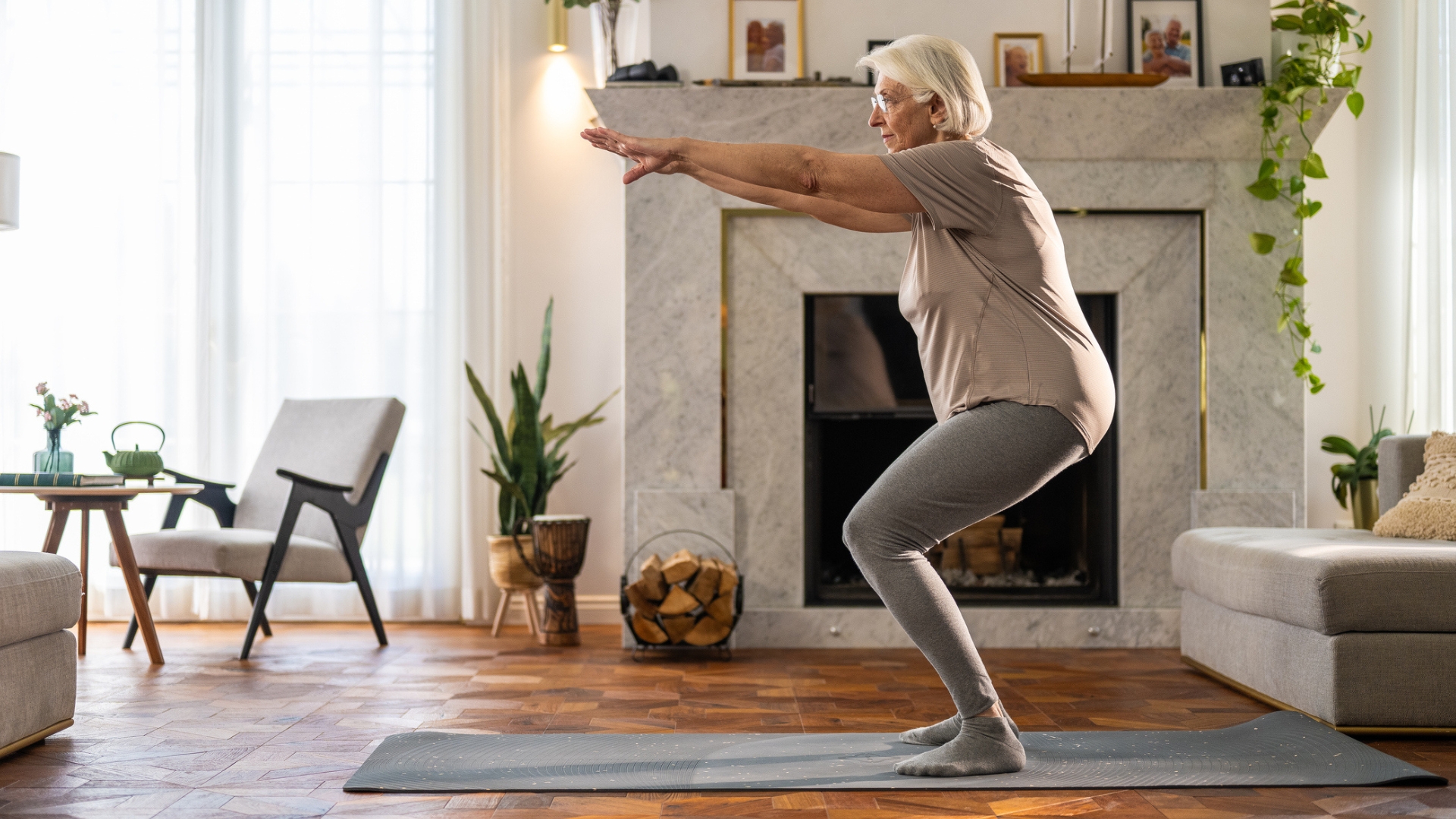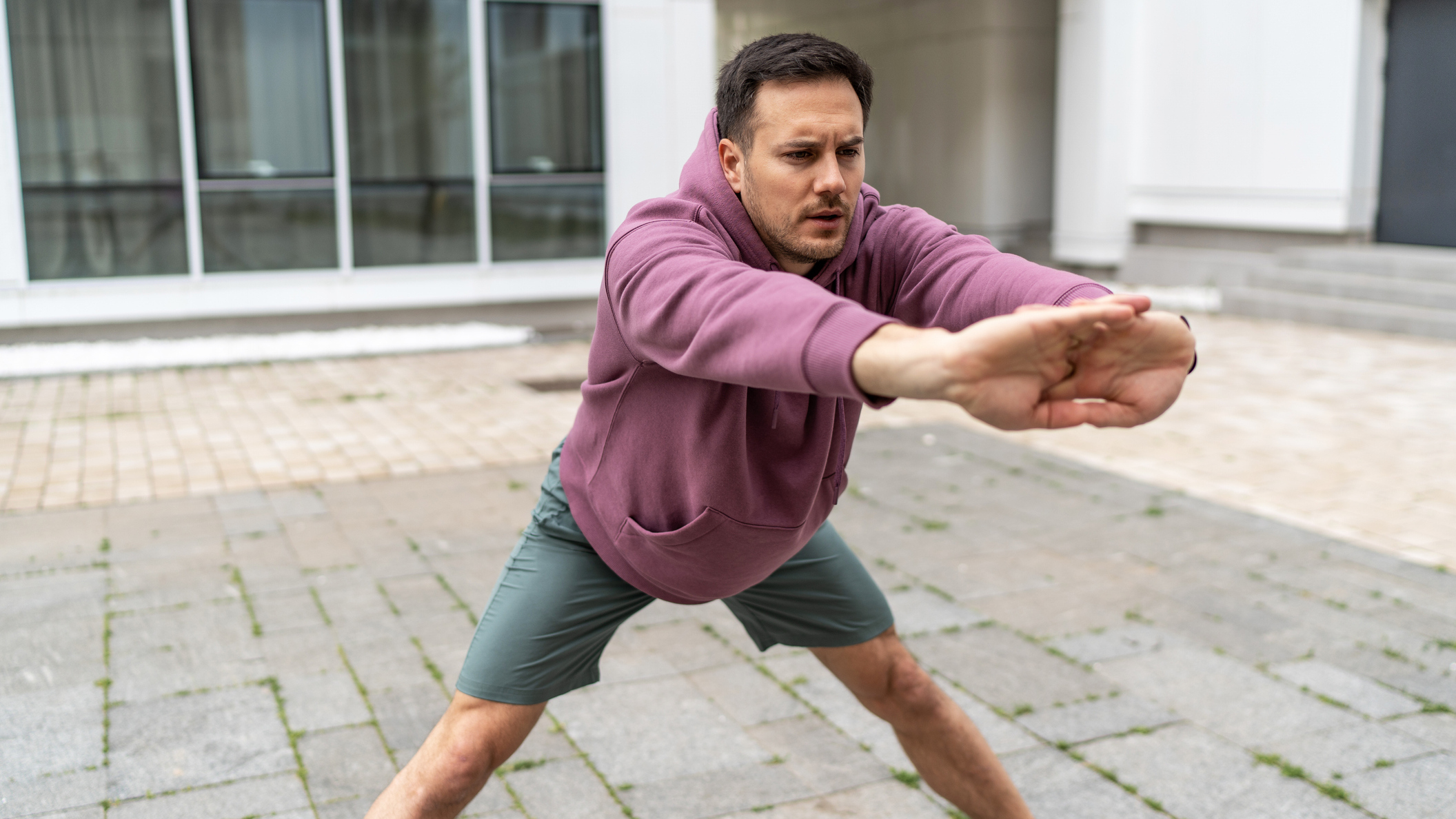Should you lift heavy or light weights to build muscle?
We asked two fitness experts to settle the heavy vs light weights debate and whether lighter weights build muscle


Heavy vs light weights; it's a choice we all have to make for our strength training workouts. It can feel powerful to lift a heavy dumbbell, but do you always need to use the heaviest load you can find, or do lighter weights have their place?
Alternatively, maybe there's a balance between the two, where you use a set of the best adjustable dumbbells and modify the load depending on the exercise to get optimal results.
Depending on who you ask, you'll probably get a different answer to the heavy vs light weights debate. If you want to build visible muscle, many people choose heavy. But if you're new to resistance training, you're often told to use light weights.
That's why we asked two fitness experts to weigh in on the subject and help shed light on whether heavier or light weights are best for building muscle and when you might consider increasing or decreasing the load.

Sasha Lukaszczyk is a NASM-certified personal trainer based in Denver, Colorado, and the founder of MeetsFitness, a space dedicated to helping women eat well and look after their bodies and mind.
Heavy vs light weights: which is best for building muscle?
In general, lifting heavier weights is more effective for building muscle. Fitness coach Sasha Lukaszczyk says, "heavy weights are best," and explains, "Your body needs an adequate enough external stimulus that it has to overcome to grow and adapt.
"Your body builds muscle when you are pushed to fight against an outside force. Your muscle fibers break down under the stress, and you get sore after the fact (when your muscle fibers are rebuilding themselves)."
This process strengthens and grows the muscle, so you're better equipped to handle the load the next time. So, while 'heavy' might be subjective, it's best to lift a weight that's heavy enough to strain your muscles sufficiently to cause these tiny tears.
Get the Fit&Well Newsletter
Start your week with achievable workout ideas, health tips and wellbeing advice in your inbox.
However, studies suggest lighter weights can also be effective for building muscle. Researchers at McMaster University, Canada, have tested the efficacy of lifting heavy vs light weights on various groups of men across several studies (in 2010, 2012, and 2016).
The researchers would measure each participant's muscle growth after they'd performed specific leg exercises for several weeks. Some used heavy weights (80-90% of their one-rep maximum (1RM)), while the others lifted 30-50% of their 1RM.
Instead of exercising for a certain amount of repetitions, the group was asked to train to exhaustion, so those lifted on the lighter end could do more repetitions. The team found heavy weights and lower reps and lighter weights and more reps were both effective for building muscle.
But this may only hold true for increasing the size of your muscles rather than developing muscular strength, as a study published in Frontiers in Physiology found that heavier weights are best for building stronger muscles.
They suggest this is because the increased load helps strengthen the mind-muscle connection, allowing similarly-sized muscles to lift heavier weights. So, heavier weights build strength, while lighter loads can grow your muscles with the right balance of weights vs reps.
Heavy vs light weights: which is best for beginners?
If you're starting out, you may feel nervous about lifting heavy weights. But Lukaszczyk says you don't have to lift the heaviest weight so long as you choose something heavy enough to challenge your muscles safely.
She says: "Choosing heavier weights that challenge you while maintaining proper form and increasing total volume workout to workout is the best way for a beginner, intermediate, or advanced lifter to gain muscle."
Yet personal trainer Ria Trujillo recommends a different approach. "As a beginner, starting with body weight is ideal. You want to start slowly, as adding resistance essentially tears the muscle. The smaller the weight, the smaller the tear, and the less soreness and faster recovery time."
She adds that it's best to avoid going too heavy, as it may cause a more significant tear and could result in an injury. Plus, starting with your body weight alone develops the mind-muscle connection, so you can focus on your form and perfect your technique.

Ria Trujillo is a NASM-certified personal trainer, nutrition coach, and certified ACE health and wellness coach in Miami, Florida. She designed the Metamorphosis Online Coaching program and regularly leads women's strength training classes at Iron Fist Gym.
Heavy vs light weights: which is best for weight loss?
So, if heavy weights are suitable for strengthening and growing your muscles, what's your best option to lose weight? According to Lukaszczyk, it comes down to how much energy your body uses.
"The way you achieve weight loss can be boiled down to simply expending more energy than you're taking in. So, working out with weights, doing cardio exercises, and generally moving more should burn more calories than the amount you are eating."
This is known as developing a calorie deficit and is considered one of the most well-known methods to lose weight. "This makes the heaviness of the weights you are using not all that important," says Sasha.
"You will still burn [a similar amount of] calories lifting heavy weights as you do lighter weights," especially if you're doing more repetitions with the light weights, which may initially sound counterintuitive.
But there's also a difference between weight loss and fat loss. You can lose weight in a calorie deficit, so the numbers of your bathroom scales go down, but many people want to drop fat and have a leaner physique, even if this means gaining weight.
That's why most of the best exercises for weight loss require weights, as you'll build muscle, increase your heart rate, and boost your metabolism, so you burn fat during your workout and throughout the day.
What are the disadvantages of lifting heavy weights?
When it comes to the potential downsides of lifting heavier weights, Lukaszczyk and Trujillo make the distinction between safely lifting heavier weights and going too far.
Ria says: "Lifting weights that are too heavy a load may hurt your muscles, tendons, and ligaments." She recommends talking to a personal trainer before starting a new fitness program. Alternatively, you could use a kettlebell workout for beginners to get familiar with the techniques.
"There are only disadvantages [of lifting heavy weights] if you're lifting with improper form, going too heavy than your body can handle, and lifting too frequently without giving your body any rest or recovery time," adds Lukaszczyk.
"I recommend lifting four to five times a week. For the more advanced, six can be manageable; for beginners, three days is enough to start. Always research form and technique and only lift what you can while maintaining good form." Otherwise, she says, injuries can happen.
And it's essential to give your body time to recover between resistance workouts. This helps repair the damage in your muscles, especially if you use one of the best protein powders for weight loss to give your body the nutrients it needs to strengthen and grow your muscles.
Hatty Willmoth is an experienced journalist specialising in nutrition, health and wellness. As staff writer and communications officer at the Institute for Optimum Nutrition (ION), she has written many articles for their magazine and website. Hatty also has bylines at Time & Leisure magazine, news publication South West Londoner, and Sussex Bylines.
She holds a Gold Standard qualification from the National Council for the Training of Journalists (NCTJ) and a First Class BA degree from Queens’ College, University of Cambridge. She fills her spare time with cooking, yoga, ballet, making videos for her YouTube channel, and the occasional jog.
-
 The three Pilates exercises every beginner should start with, according to an expert instructor
The three Pilates exercises every beginner should start with, according to an expert instructorA sequence that will take you no more than 10 minutes
By Alice Porter
-
 Chris Hemsworth swears by something called Foundation Training to keep back injuries at bay—here's how to master one of its core movements
Chris Hemsworth swears by something called Foundation Training to keep back injuries at bay—here's how to master one of its core movementsTime to introduce this into your daily routine
By Sam Rider